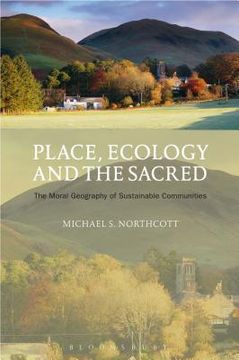Share
Place, Ecology and the Sacred (in English)
Michael S. Northcott
(Author)
·
Bloomsbury Publishing PLC
· Hardcover
Place, Ecology and the Sacred (in English) - Northcott, Michael S.
$ 228.57
$ 285.71
You save: $ 57.14
Choose the list to add your product or create one New List
✓ Product added successfully to the Wishlist.
Go to My WishlistsIt will be shipped from our warehouse between
Monday, June 03 and
Tuesday, June 04.
You will receive it anywhere in United States between 1 and 3 business days after shipment.
Synopsis "Place, Ecology and the Sacred (in English)"
People are born in one place. Traditionally humans move around more than other animals, but in modernity the global mobility of persons and the factors of production increasingly disrupts the sense of place that is an intrinsic part of the human experience of being on earth. Industrial development and fossil fuelled mobility negatively impact the sense of place and help to foster a culture of placelessness where buildings, fields and houses increasingly display a monotonous aesthetic. At the same time ecological habitats, and diverse communities of species are degraded. Romantic resistance to the industrial evisceration of place and ecological diversity involved the setting aside of scenic or sublime landscapes as wilderness areas or parks. However the implication of this project is that human dwelling and ecological sustainability are intrinsically at odds. In this collection of essays Michael Northcott argues that the sense of the sacred which emanates from local communities of faith sustained a 'parochial ecology' which, over the centuries, shaped communities that were more socially just and ecologically sustainable than the kinds of exchange relationships and settlement patterns fostered by a global and place-blind economy. Hence Christian communities in medieval Europe fostered the distributed use and intergenerational care of common resources, such as alpine meadows, forests or river catchments. But contemporary political economists neglect the role of boundaried places, and spatial limits, in the welfare of human and ecological communities. Northcott argues that place-based forms of community, dwelling and exchange - such as a local food economy - more closely resemble evolved commons governance arrangements, and facilitate the revival of a sense of neighbourhood, and of reconnection between persons and the ecological places in which they dwell.
- 0% (0)
- 0% (0)
- 0% (0)
- 0% (0)
- 0% (0)
All books in our catalog are Original.
The book is written in English.
The binding of this edition is Hardcover.
✓ Producto agregado correctamente al carro, Ir a Pagar.

